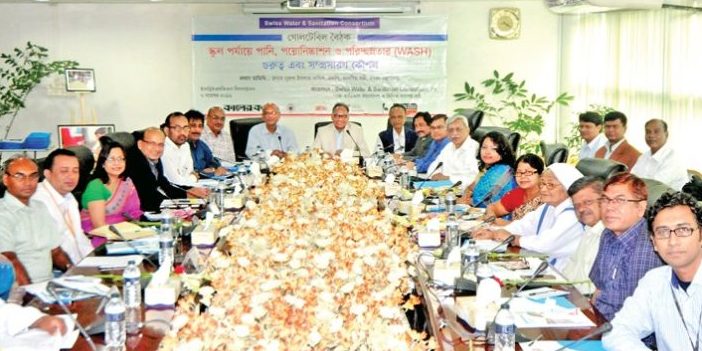
The results of a multi-stakeholder roundtable on “The importance and expansion strategy of water, sanitation and hygiene (WASH) at school level” have been broadcasted in the two Bangladesh journals, the Daily Kaler Kantho (link) and Daily Sun newspaper (link). The event was jointly organized by Caritas Bangladesh on behalf of Swiss Water & Sanitation Consortium and Daily Kaler Kantho. The roundtable was attended by the Bangladeshi Minister of Health, the Director of Higher Education, the Chief Engineer, Department of Public Health Engineering, the Vice Chancellor of Stamford University and Country directors of several international and national NGOs such as WASH alliance, Save the Children and WaterAid Bangladesh.
The roundtable participants highlight the importance of personal hygiene and improved sanitation for the health of children and the future of Bangladesh. Many promising ideas were shared to overcome problems related to water, sanitation and hygiene in Bangladesh:
- the formation of cleanliness committees at school
- building separate toilets for male and female students
- water and sanitation issues to be included in text books and in national academic curriculum
- conduct a handwashing campaign at national level, as this has proven successful in 83 pilot schools
- children act as change agents for the society: what they learn at school will be passed on in their families
- to guarantee that the message is shared with the families, mothers can be invited to monthly WASH meetings
- sanitary napkins provided by female teachers has proven to be very useful for effective menstrual hygiene management at schools, this approach could be up-scaled to national level

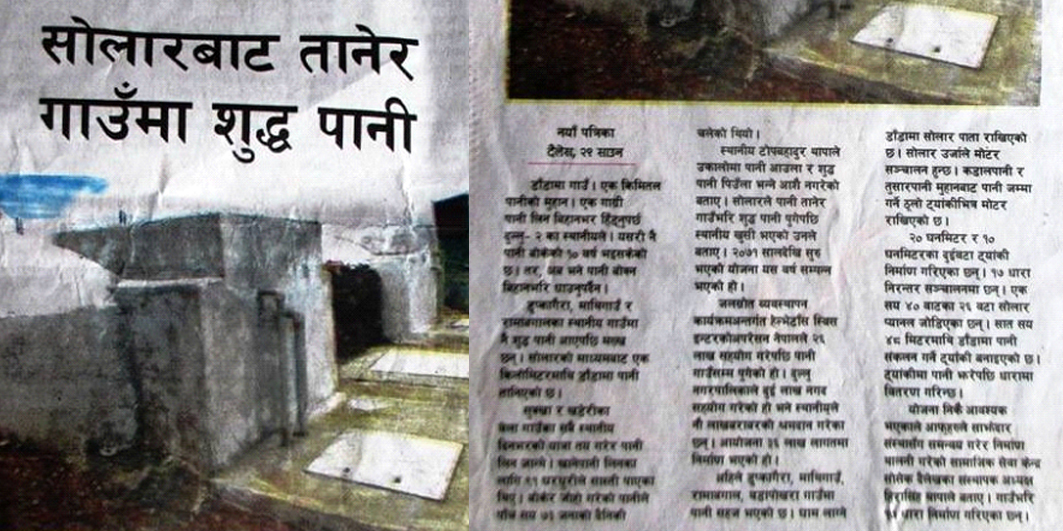
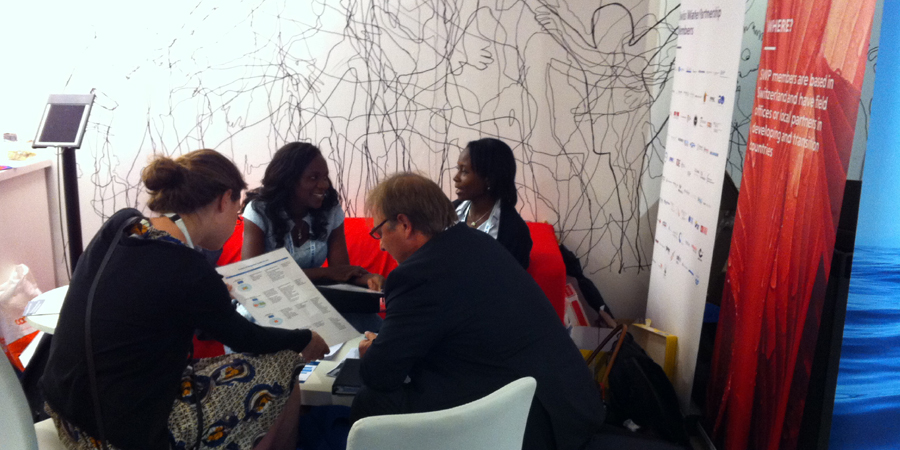
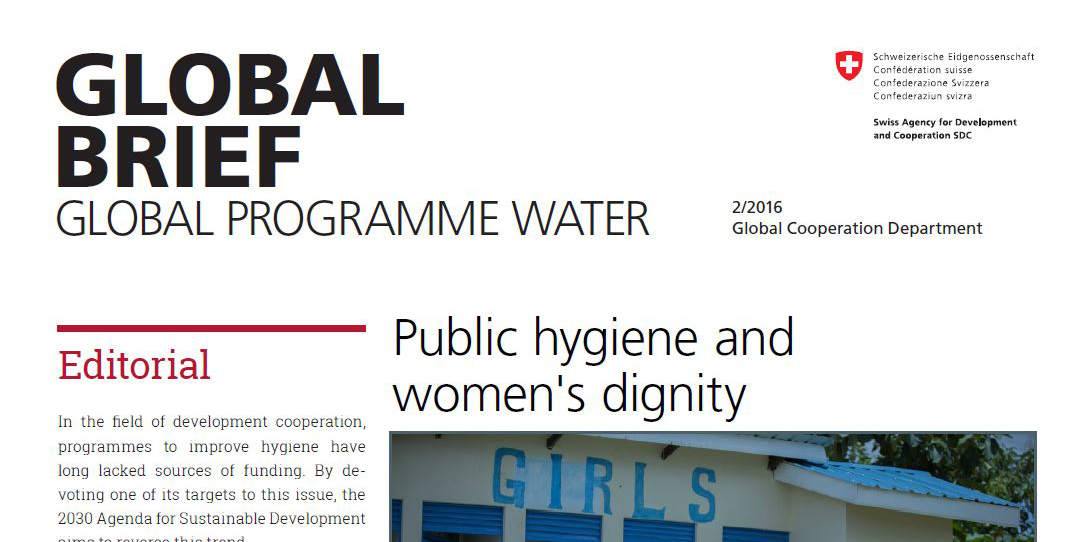
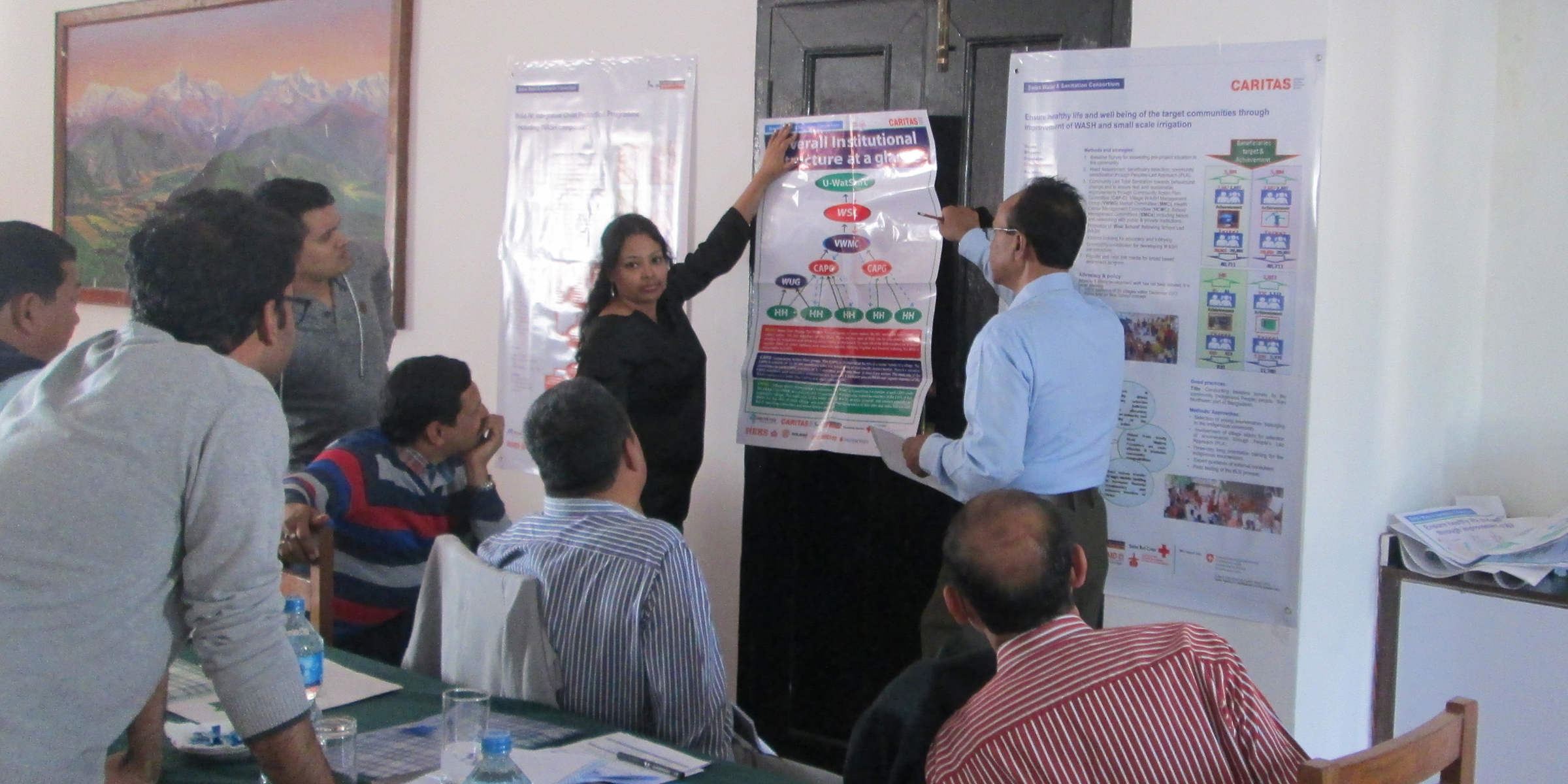
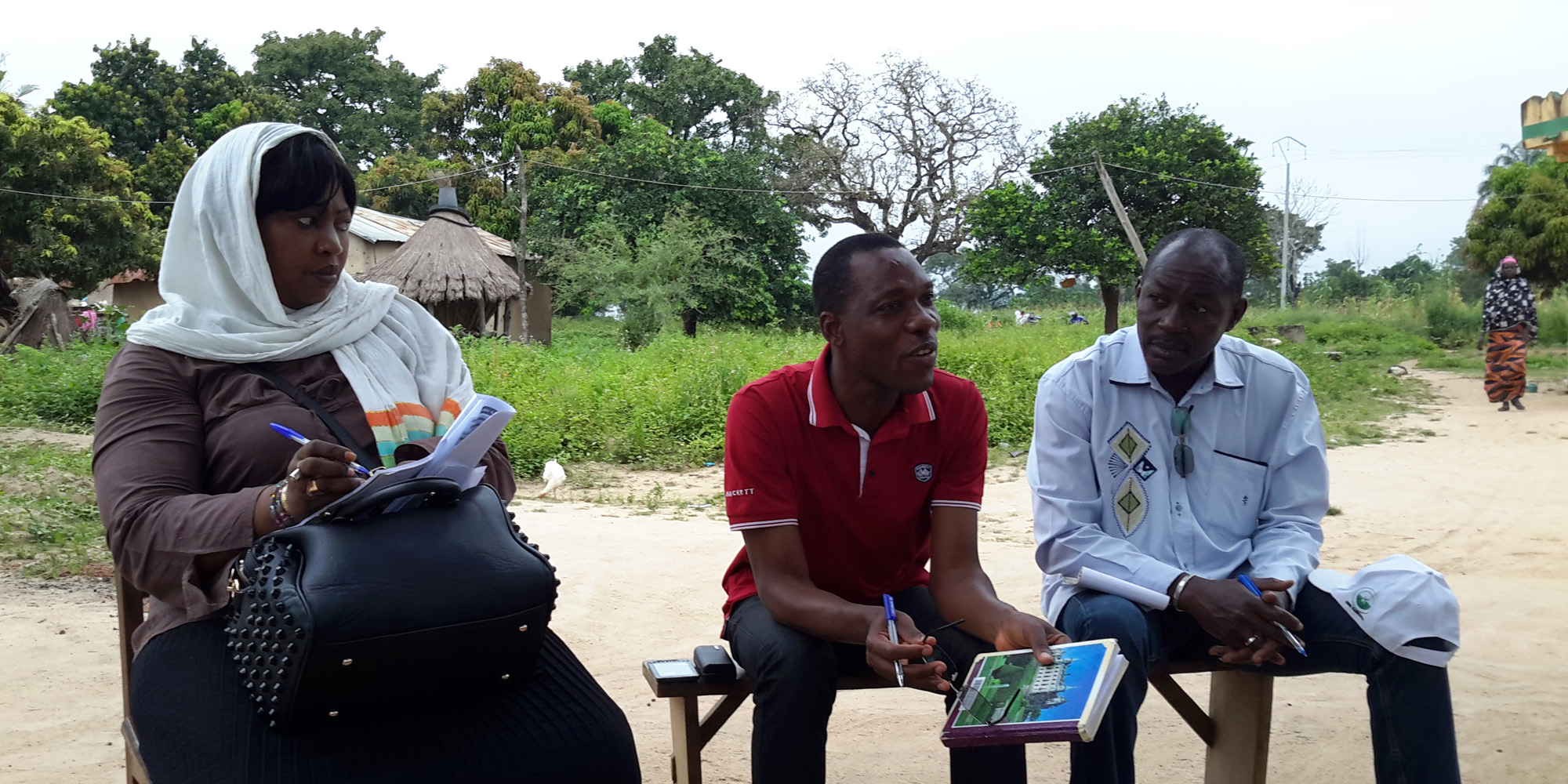 The second regional workshop in Francophone Africa was held from 12 to 15 October 2015 in Sokode, Togo. It was an opportunity for all projects of the group to come together to share experiences, learn from each other and improve the quality of their interventions. Through presentations, movies, group work and a field visit, 26 participants from 6 different countries (Mali, Niger, Togo, Benin, Madagascar, Switzerland) have shared their experiences and knowledge.
The second regional workshop in Francophone Africa was held from 12 to 15 October 2015 in Sokode, Togo. It was an opportunity for all projects of the group to come together to share experiences, learn from each other and improve the quality of their interventions. Through presentations, movies, group work and a field visit, 26 participants from 6 different countries (Mali, Niger, Togo, Benin, Madagascar, Switzerland) have shared their experiences and knowledge.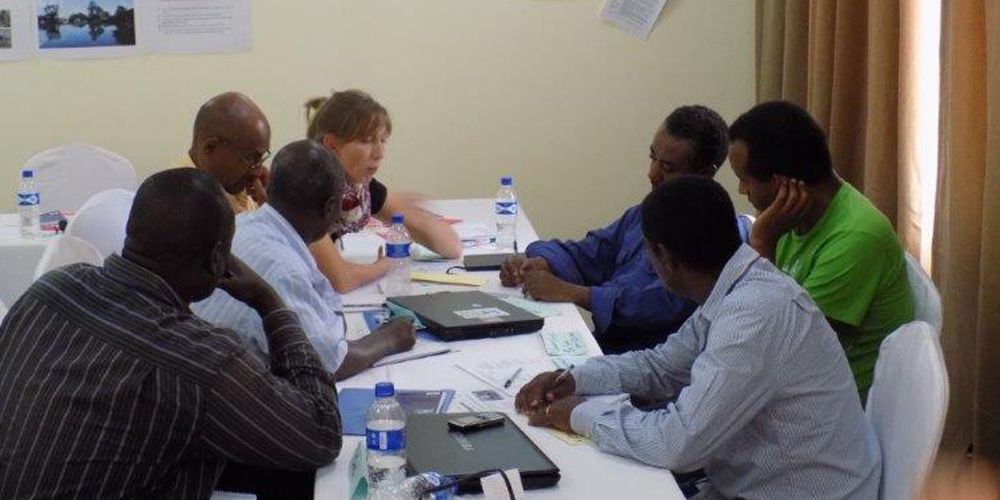 The Regional Workshop for Eastern and Southern Africa was held from 21-24 September 2015 in Pemba, Mozambique and brought together Consortium partners from Ethiopia, Mozambique and South Sudan. The main objectives of the workshop were to:
The Regional Workshop for Eastern and Southern Africa was held from 21-24 September 2015 in Pemba, Mozambique and brought together Consortium partners from Ethiopia, Mozambique and South Sudan. The main objectives of the workshop were to: